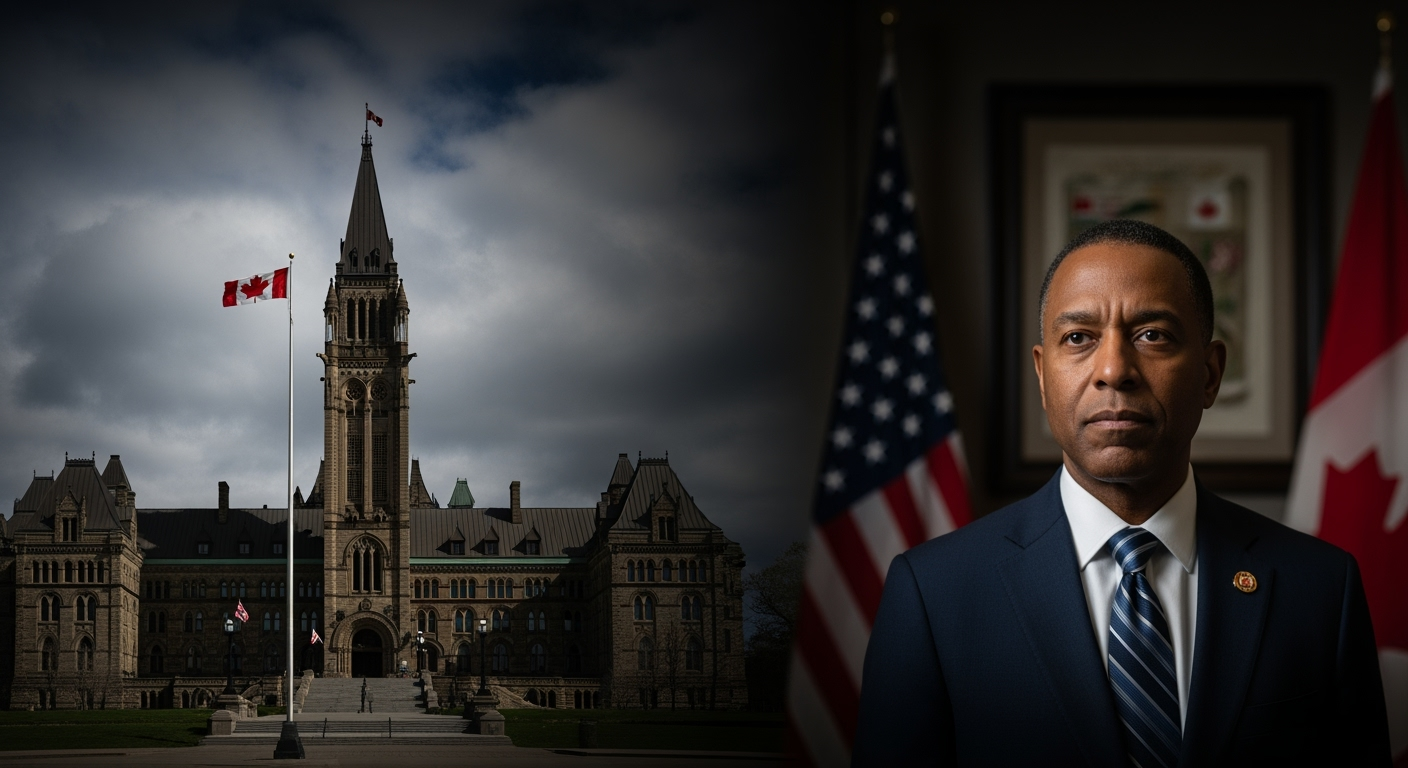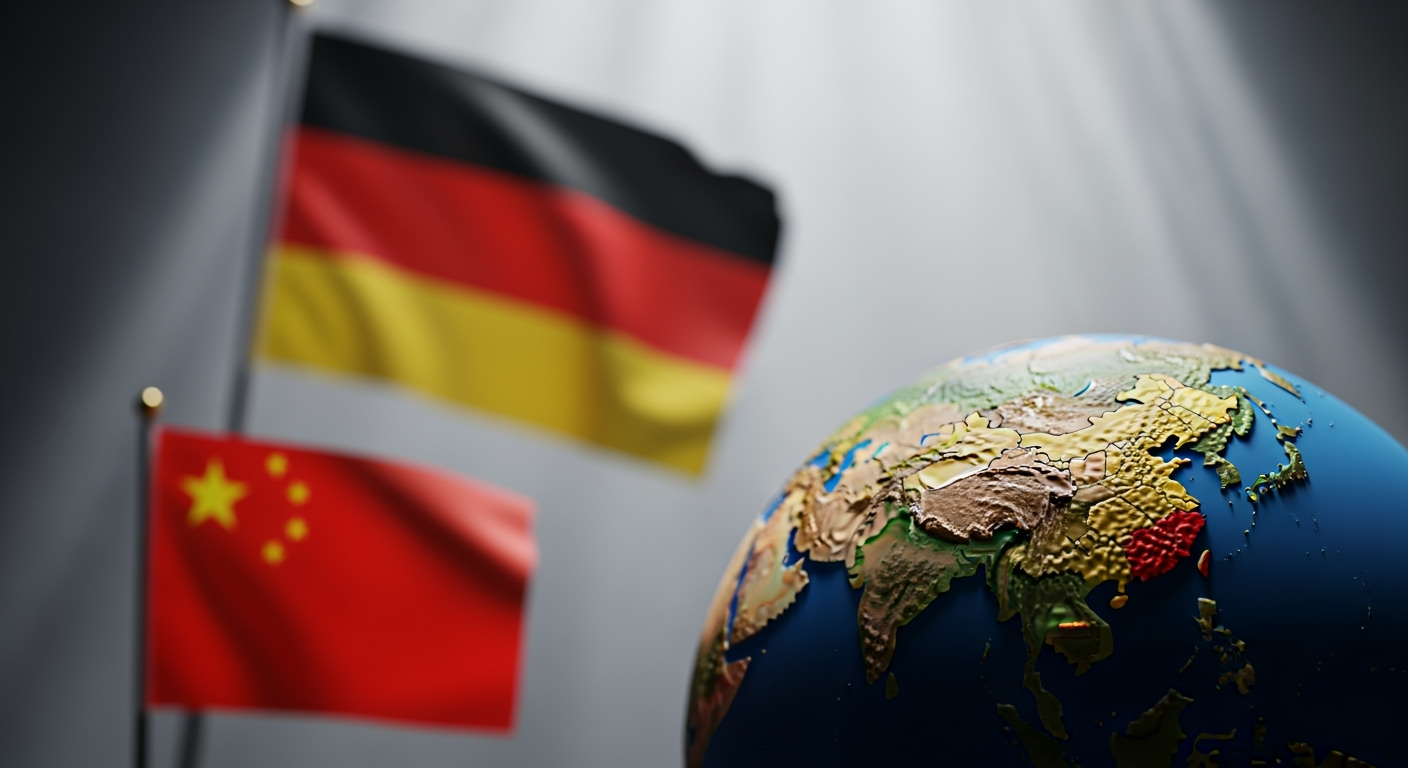Related Articles

Ontario Halts Anti-Tariff Campaign After Trump Ends Trade Talks, Sparking Diplomatic Fallout




Berlin, Germany – Germany’s foreign minister, Johann Wadephul, has postponed a highly anticipated trip to China, citing Beijing's inability to confirm a comprehensive schedule of meetings crucial for substantive discussions. The decision, announced Friday, underscores a growing strain in diplomatic and economic relations between the two global powers, exacerbated by disputes over trade, human rights, and China's stance on the war in Ukraine.
The deferral marks a significant moment in Germany's evolving foreign policy, reflecting Berlin's increased assertiveness in balancing its vital economic ties with China against mounting geopolitical and values-based concerns. The German Foreign Ministry expressed regret over the postponement, emphasizing that a mere meeting with the Chinese foreign minister was insufficient given the breadth of issues Germany intended to address.
The planned visit by Foreign Minister Wadephul, intended to take place "in the coming days," was called off after the Chinese side confirmed only a meeting with their foreign minister, failing to secure additional appointments deemed necessary by Berlin. A German Foreign Ministry spokesperson indicated that Berlin had a robust agenda, including critical discussions on China's trade restrictions, particularly those affecting rare earths and semiconductors. Germany also sought to press China on its potential influence over Russia in ending the ongoing conflict in Ukraine, stating that "no other country has as much influence on Russia."
This diplomatic setback is not an isolated incident. A similar postponement occurred in July 2023 when a visit by the EU's top diplomat, Josep Borrell, was canceled by Beijing without clear explanation. These events signal a hardening in China's diplomatic posture, even as European nations attempt to engage Beijing on pressing global matters.
At the heart of the current tensions lies a complex web of economic dependencies and emerging trade disputes. Germany, like the broader European Union, has increasingly adopted a "de-risking" strategy towards China. This approach, which gained prominence in Germany's "Strategy on China" published in July 2023, aims to reduce critical one-sided dependencies on Beijing without fully "decoupling" economically. New German Chancellor Friedrich Merz, who took office in May 2025, has publicly endorsed this "strategic de-risking," emphasizing that Germany's ties with China are "shaped by systemic rivalry and power politics."
Recent Chinese actions have amplified these concerns. Beijing's announcement of new controls on the export of rare-earth technologies, essential for numerous high-tech industries including automotive, electronics, and defense, has particularly irked the EU. European officials contend that these restrictions have already forced some companies to curtail production and inflicted economic harm. Another flashpoint arose from the Dutch move to assume control of chipmaker Nexperia, a company based in the Netherlands but owned by Chinese interests. Following this, Beijing banned the export of some of Nexperia's products from China, raising fears of crucial chip shortages in Europe. German Economy Minister Katherina Reiche recently engaged with the Chinese Commerce Ministry to advocate for the resumption of chip exports, though the situation remains unresolved.
Despite efforts to diversify, China remains a crucial economic partner for Germany. For eight consecutive years, China held the title of Germany's largest trading partner, with a trade volume reaching approximately 246 billion euros in 2024. However, this relationship is undergoing a transformation, marked by intensified industrial competition, particularly in sectors where German manufacturing has historically excelled, such as the automotive industry. German carmakers, for instance, have seen their market share in China decline significantly in the 2020s due to the rising competitiveness of Chinese brands and rapid advancements in electric vehicle technology. This shift prompts German businesses to re-evaluate their engagement, with some advocating for a renewed partnership while others navigate the government's stance on China as a "systemic rival." The Deutsche Bundesbank has also highlighted the significant risks to Germany's economy from its deep ties with China, especially in the event of an economic crisis or an abrupt decoupling.
Beyond economic concerns, Germany's foreign policy towards China is increasingly shaped by geopolitical considerations. Germany has been vocal about its expectation for China to play a constructive role in resolving the conflict in Ukraine. The German Foreign Ministry explicitly stated its interest in China contributing to a "just and lasting peace" in the region. This position reflects broader European unease over China's continued economic and, reportedly, military support for Russia, which is perceived to run counter to European security interests. Former German Foreign Minister Annalena Baerbock, in December 2024, had directly criticized China for providing "economic and military aid to Russia," stating it went "against our core European interests."
Human rights remain another persistent point of divergence. Germany, alongside other Western nations, has historically raised concerns regarding China's treatment of minority groups, particularly the Uyghurs in Xinjiang, and issues concerning individual freedoms and the rule of law. While not explicitly stated as a direct reason for the current postponement, these fundamental differences contribute to the complex and often contentious nature of the bilateral relationship.
The current state of affairs represents a significant departure from the era of robust, primarily economically driven cooperation that characterized much of the post-reunification period. Diplomatic relations between Germany and China, established in 1972, deepened significantly, particularly under former Chancellor Angela Merkel, elevating to a comprehensive strategic partnership in 2014. For decades, Germany saw China predominantly as a crucial market and manufacturing hub.
However, the German government's "Strategy on China" published in 2023 openly acknowledges China as simultaneously a "partner, a competitor, and a systemic rival." This shift in perception signals a more critical and nuanced approach. Past high-level visits have often highlighted these tensions. For instance, Annalena Baerbock's visits in April 2023 and December 2024 were marked by direct criticism of China's human rights record and its stance on Ukraine, leading to instances of public disagreement or a lack of customary joint press conferences. German Chancellor Olaf Scholz's visit to China six months prior to the recently postponed trip also occurred in an environment of heightened scrutiny over Germany's China policy. The consistent push for "de-risking" by successive German leaders, including Chancellor Merz, underscores a fundamental re-evaluation of Germany's national interests in the context of an increasingly assertive China.
The postponement of Foreign Minister Wadephul's trip serves as a clear indicator of the challenges inherent in the contemporary Germany-China relationship. It highlights Beijing's unwillingness to engage in discussions on terms that Germany deems necessary for a truly productive dialogue, particularly on sensitive issues like trade restrictions and the Ukraine war.
While the immediate impact is a diplomatic freeze, both sides appear keen to prevent a complete breakdown. Foreign Minister Wadephul intends to hold phone talks with his Chinese counterpart soon, and senior EU officials are slated for urgent talks in Beijing in the near future. Yet, the incident reinforces Germany's commitment to its "de-risking" strategy and its efforts to diversify supply chains and reduce vulnerabilities. The delicate balancing act for Germany—maintaining economic engagement with China while upholding its values and addressing security concerns—is likely to become even more intricate as global geopolitical dynamics continue to shift. The path forward will require sustained diplomatic efforts and a clear understanding from both nations of the evolving nature of their relationship.